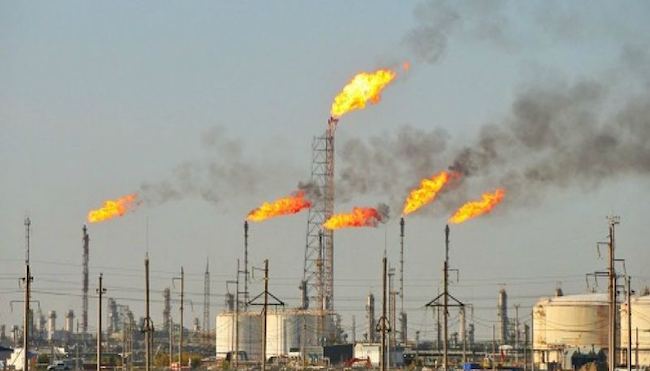The National Oil Spill Detection and Response Agency (NOSDRA) has revealed that in 10 years Nigeria flared natural gas worth over $13.3bn (N4 trillion), IgbereTV reports

The figure was reached after calculating 8 billion standard cubic feet (scf) of both onshore and offshore flared gas detailed in NOSDRA gas flare tracker from 2012 to 2021.
Although the amount of flared gas has reduced by 31 percent between 2012 and 2021, flare intensity increased by 10 percent in the same period.
A breakdown from NOSDRA shows in 2021, 23,950.271 barrels of oil (3,784,142.864 liters) were spilled. That’s around 120 oil tanker trucks full.
This is a drop from 23,450.704 barrels of oil (3,705,211.259 liters) spilled in 2020 which comes to around 117 oil tanker trucks full.
NOSDRA data show The Shell Petroleum Development Company of Nigeria (SPDC), Eroton E&P, and ND Western Limited all recorded the biggest spill.
Shell spilled 13,560 Billion barrels, while Eroton E&P spilled 4,771 billion barrels, and ND Western 1,490 billion barrels
The country’s inability to commence the gas flare commercialization programme approved by the government in 2016 is said to be limiting efforts to end flaring.
The Nigerian Gas Flare Commercialisation Programme (NGFCP) is an ambitious plan to sell over 700 million scf of gas a day flared at 178 different sites.
The NGFCP was established to achieve the government target of eliminating gas flaring in the Niger Delta by 2020. The Petroleum Act of 1969 and Flare Gas (Prevention of Waste and Pollution) Regulations 2018, signed in July 2018, provide the basis for the NGFCP.
Based on the right of the Federal Government under the Petroleum Act, the NGFCP was designed to offer a series of auction rounds, wherein the Federal Government takes the flare gas at the flare sites, and auctions it to third parties for commercialisation.
The programme has, however, stalled after 203 bidders emerged and little else has been heard about it after the Petroleum Industry Act established a new regulator to take over the sector.
However, other African countries are harnessing their gas potential.
In April, Italy signed a gas supply deal with Algeria. The agreement will see Italy ramp up gas imports from Algeria by around 40 percent in its first major deal to find alternative supplies following Russia’s invasion of Ukraine.
Nigeria, whose proven reserve grew to 209 trillion cubic feet in January 2022, can leverage gas to grow its economy and meet critical needs outside the country






